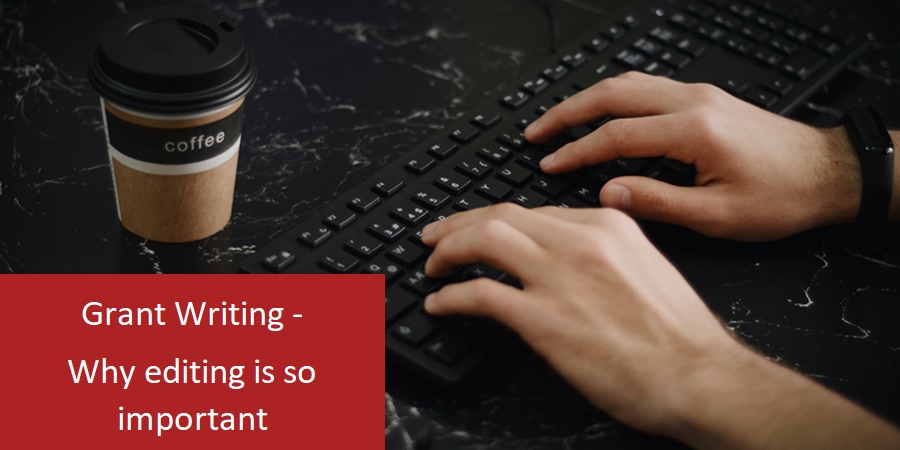Grant Writing – Why editing is so important?
Mistakes in grant applications do not go unnoticed. They reduce the reader’s confidence in your sporting or community organisation. This is not the impression you are aiming for as grant writer.
What’s the difference between editing and proofreading?
Editing and proofreading are two different phases of the revision process. They focus on different aspects of your writing.
Editing follows your first draft. It involves revising and improving the overall flow and content of your document.
Editing covers content, structure within paragraphs, overall structure, style and clarity.
Proofreading comes at the final stage of your writing. Its focus is the cosmetics of your writing. This includes spelling mistakes, punctuation mistakes and grammatical errors.
Editing should include:
Content
Check that the facts you have included are accurate. Ensure your claims are consistent and relevant. Inaccurate facts are not considered favourable in the grant writing process.
Overall structure
Your content needs to flow and be in a logical order. Your grant application should have clear transitions between paragraphs.
Structure within paragraphs
Each paragraph should stick to one idea, have a clear topic and answer the funding bodies questions. While editing your work, check to see if there is anything missing or unnecessary in any of your paragraphs.
Clarity
The funding body must be able to understand your content. Technical jargon should be avoided unless your reader works in that profession. This is where understanding your funding body is a very big advantage.
Style
Ensure you have stayed with one style consistently, whether formal and informal. Avoid using passive voice in your writing.
Proofreading should include:
Spell check
Spell checkers are useful, but it pays to keep in mind that they are limited. They are not able to catch incorrect use of words like “to” instead of “too” or “your” instead of “you’re”. They also cannot tell if you are inconsistent in which form of English you use. Australian or UK English words can be spelt differently from American English.
Grammar checkers
Grammar checkers are also limited. They fail to identify every error and they can also make mistakes. They also do not provide an explanation about why a sentence is flagged for revision.
Read slow and read every word
A handy tip is to read your grant application aloud. This makes you say each word which allows you to hear how it sound together. Reading silently or quickly may cause you skip mistakes or make corrections, unconscious.
Separate the text into individual sentences
Separating your work temporarily into individual sentences helps you read every sentence carefully. Isolating each sentence should make errors simpler to find.
If possible, ask someone not involved in the grant writing process to edit and proofread your work. They may be able to offer you invaluable objectivity and feedback as they will be seeing your work from a reader’s perspective.
It is also invaluable to check the presentation of your writing. Presentation can have either a positive or negative impact on your grant application.
Editing and proofreading your grant application can be very time-consuming but it is necessary to help project a positive image of your organisation to the funding body.
If you are still in doubt, professional help is available. Red Tape Busters have a team of experienced and enthusiastic grant writers who are ready to assist you in any or all aspects of you grant writing. From initiating a grant application to editing your existing one, Red Tape Busters can help.

